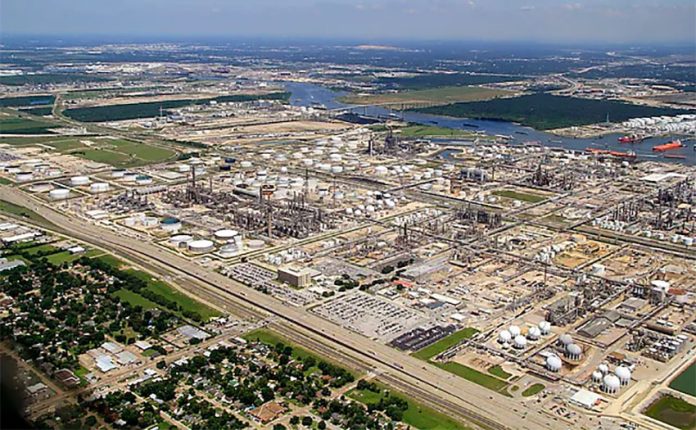Mexico’s heavily indebted state oil company has reached a deal to buy Shell Oil Company’s 50% share in the jointly-owned Deer Park oil refinery near Houston, Texas, for US $600 million, President López Obrador announced Monday.
Pemex, which has some $100 billion in debt, “bought 50% of the shares because the other 50% were already owned by Pemex,” he said in a video message posted to social media.
“In this way, we now have a new refinery. This refinery in Houston has the capacity to process 340,000 barrels [of crude] per day. … It’s the same [capacity] as the new refinery at Dos Bocas [on the Tabasco coast] that we’re building …” López Obrador said.
“In essence, we received six refineries in a poor state – we’re modernizing them, … and we’re going to deliver eight refineries [to the next government]. In this way, we’re going to stop buying fuel abroad, … we’re going to be self-sufficient by 2023.”
The president, who sees oil production as crucial to both Mexico’s sovereignty and its economic future, stressed that Pemex’s purchase of Shell’s share of the Houston refinery – a joint venture since 1993 – will not be made with funds supplied via a loan but with savings generated by the government’s austerity drive and elimination of corruption.

The acquisition comes at a time when many countries are attempting to reduce their reliance on fossil fuels. But López Obrador has made their use a cornerstone of his energy plan and has moved to make it more difficult for private, renewable companies to participate in the Mexican market.
Mexico expert Duncan Wood said on Twitter that the decision to buy Shell’s interest in the refinery “is not a bad idea per se” before adding: “but let’s see how Pemex runs the place without Shell.”
“While some oil companies seek to shed unprofitable assets, Pemex looks to accumulate. It’s an unusual investment approach. Pemex is buying an aging asset that produces a commodity for which time is running out,” wrote Wood, former director of the Wilson Center’s Mexico Institute and now the center’s vice president for strategy and new initiatives.
“A key question arises: will the Biden administration raise environmental regulations for refining, to reach climate and energy transition goals? And how expensive will that be for Pemex? Of course there is the possibility that pursuing lower emissions at Deer Park will teach Pemex how to do a better job at its refineries in Mexico … we can always dream.”
Huibert Vigeveno, Shell’s downstream director, said the company had not been planning to sell its interest in the refinery but “following an unsolicited offer from Pemex, we have reached an agreement to transfer our interest in the partnership to them.”
“Pemex has been our strong and active partner at the Deer Park Refinery for nearly 30 years, and we will continue to work with them in an integrated way, including through our on-site chemicals facility, which Shell will retain,” he said.
Shell said in a statement that “the consideration for this transaction is $596 million which is a combination of cash and debt, plus the value of hydrocarbon inventory.”
Shell and Pemex both said they expect the transaction to be completed in the final quarter of 2021.
López Obrador complained recently that the Texas refinery – which processes a significant amount of Mexican crude – has not provided any benefits to Mexico in the almost 30 years since Pemex invested in it, apparently because most profits were reinvested.
The Associated Press said that $600 million for half a refinery looks like a good deal for Mexico but added that it raises questions about the government’s $9 billion outlay to build a similar refinery on the Tabasco coast. That investment is 7.5 times higher than the apparent $1.2 billion value of the Deer Park facility.
Construction of the Dos Bocas refinery, criticized by many energy analysts on the grounds that it diverts resources from Pemex’s more profitable exploration business, is expected to be completed by the middle of next year.
Source: AP (en), El Economista (sp)
